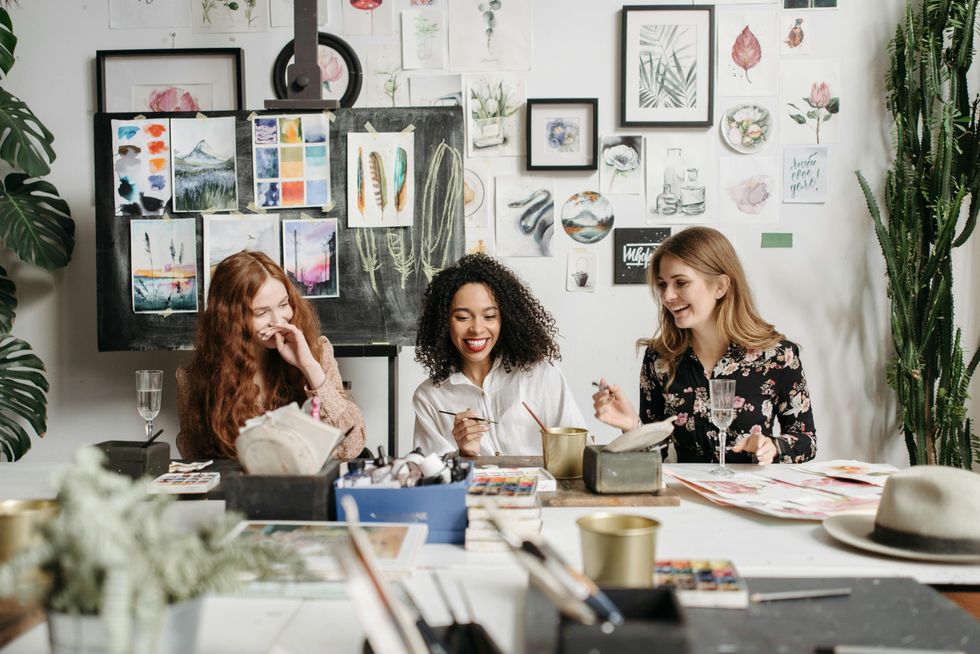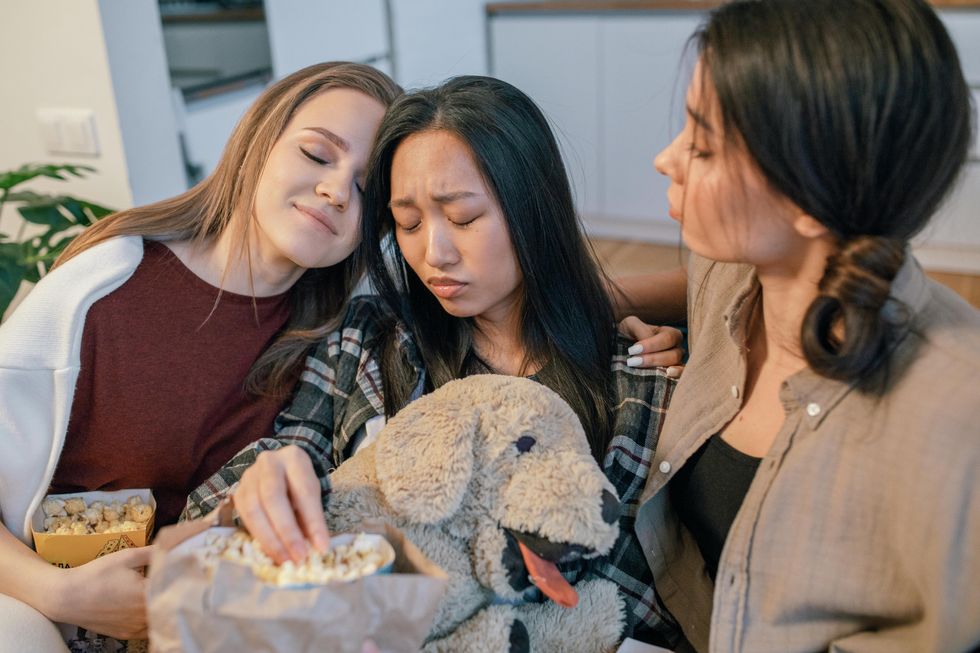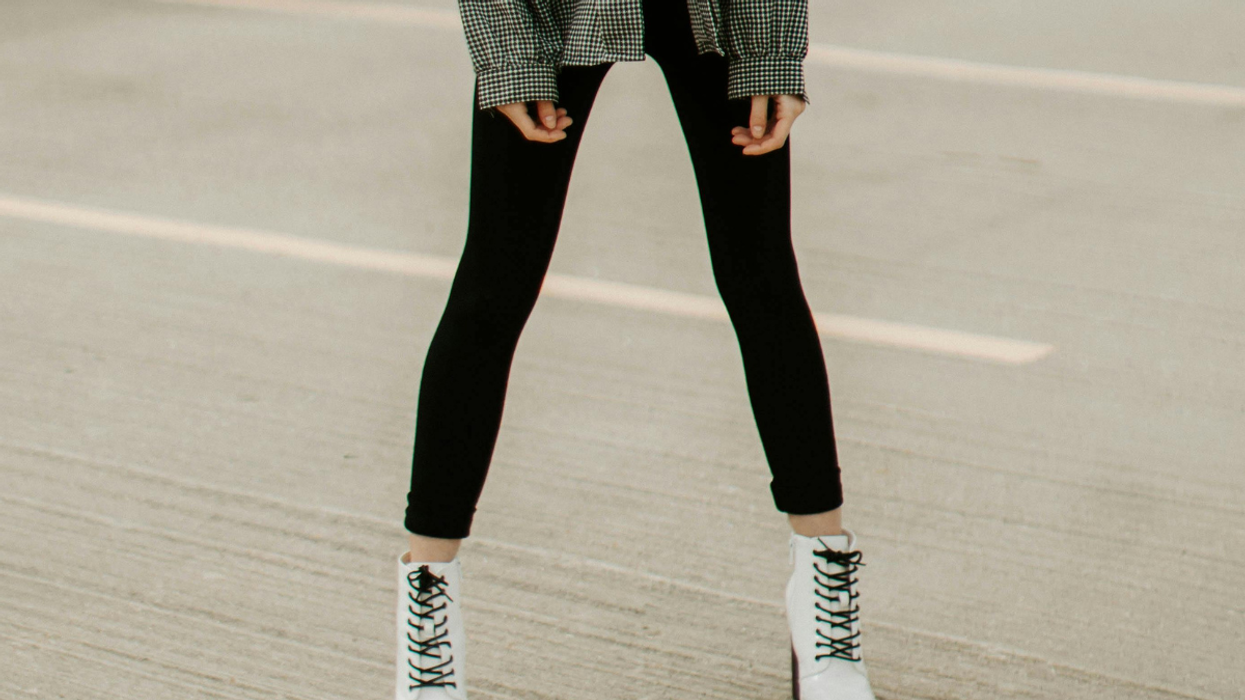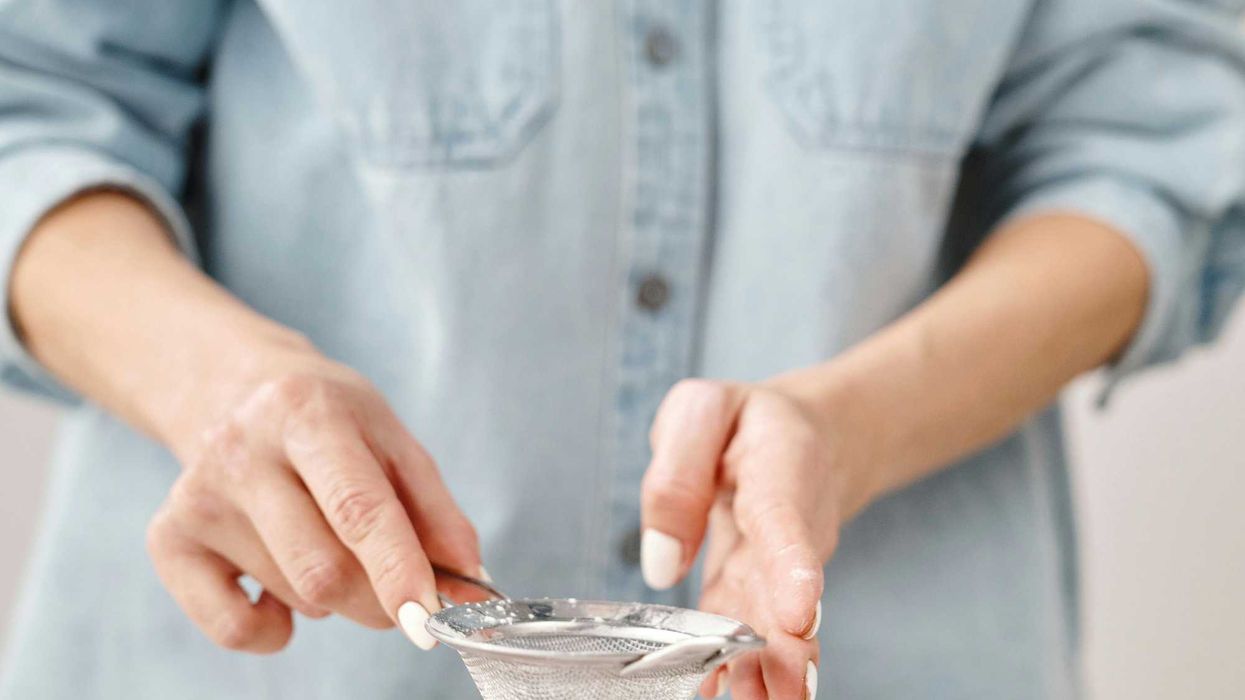This feeling doesn't have to last forever!
5 Ways To Combat The Loneliness Epidemic, According To A Psychologist

Staff Writer, Jasmine Williams, covers a variety of topics from home decor to beauty and everything in between. She has bylines at Motherly, The Everymom, and Byrdie where she wrote about motherhood, beauty, health and relationships. Jasmine knew she wanted to be a writer when she realized she was actually interested in reading the articles in her mom's favorite magazines — and she may or may not have ripped her favorite articles out to study them later. When she's not working, you can find Jasmine playing make-believe with her toddler, spending an undisclosed amount of time in Target or TJ Maxx, and searching for a family-friendly puppy to add to her family.
Last month I chatted Amanda Montell by mentioning the glaring loneliness epidemic that's taken over lately. While we had a great conversation about overcoming our overthinking, it really got me wondering: how did we get here?
According to a study conducted by the U.S. Surgeon General Dr. Vivek Murthy, the pandemic and our increased reliance on technology seems to be the source of the collective social decline we’re experiencing. In 2022 — two years out from the 2020 lockdowns — only 39% of adults reported feeling emotionally close to others. For those of us who consider ourselves to be introverts, this may feel par for the social course — but it really isn't.
There's potential for greater health concerns here, both mentally and physically. Dr. Murthy discovered that a prolonged decline in social connection with others “...can increase your risk of heart disease by 29% and risk of stroke by 32%.” That’s no laughing matter, especially if heart disease runs in your family like it does in mine.
It’s something Eric Liu, CEO of Citizen University elaborated on during an episode of NPR’s Morning Edition podcast last year. He said, “When you are alone and disconnected, there’s more stress, there’s more inflammation, there’s more anxiety.” And while some of us prefer our own company, statistics show that's not always the healthiest choice for us in the long run.
To understand all this even more, I spoke with Licensed Perinatal Mental Health & Trauma Therapist Becca Reed, LCSW, PMH-C. Together, we broke down how we can combat the loneliness epidemic and positively affect our health at the same time. Here's what I learned!
How prevalent is the loneliness epidemic actually?

Image via Liza Summer/Pexels
I've joked with my sister that there seems to be a change in the way people interact with each other since the pandemic, but there's some truth to it. Reed says, "Since the pandemic began, I've observed a marked increase in feelings of loneliness across various age groups. What’s particularly interesting is the depth of loneliness people have expressed, even after moving back into engaging in normal activities."
Think about the last time you went to the grocery store — did it seem like some people exist in their own worlds without apparent regard for others? It could very well be a symptom of this very epidemic. "Many of my clients have reported feeling disconnected not just from others, but also from parts of themselves. The pandemic disrupted our regular social habits and created a void that many are still learning how to fill," explains Reed.
Does social media play a role in the way we perceive introversion and loneliness?

Image via Arina Krasnikova/Pexels
I can't completely shun social media because it's introduced me to different brands, people, and even my career as a journalist. However, I've also wondered if social media has a major influence on the way we think and interact with the world around us — especially in regards to introversion and loneliness. Reed believes there's more to it than that.
"Our lifestyles and societal values greatly influence how we view introversion and loneliness. For instance, highly individualistic cultures, like in the U.S., often celebrate extroversion," she says before adding, "This celebration can make quieter, introverted ways of engaging with the world seem less valuable."
This may pose an issue for those who are always busy and aren't actively interacting with others beyond a surface level. Reed says, "Additionally, our busy modern lifestyles are filled with long work hours and personal commitments. This can leave little room for deep, sustained social interactions. As a result, those who may not reach out actively can feel further isolated."
What are some signs that someone is experiencing loneliness?

Image via Ivan Samkov/Pexels
Dr. Murthy also told NPR, “Some people react to loneliness by withdrawing and getting quiet. Others react to loneliness by becoming irritable and angry, and they may lash out more” before adding “...sometimes we need somebody else to tell us, ‘Hey, you’ve been withdrawing more’ to help us understand we might actually be dealing with loneliness.”
This is something that Reed also reiterated. She says, "Signs of loneliness frequently include significant changes in mood and behavior. This might look like increased irritability, persistent sadness, or withdrawal from usual activities" while "Physically, loneliness might manifest through disrupted sleep patterns or a change in appetite."
From personal experience, I've been known to dissociate if I'm feeling overwhelmed, anxious, or upset so I'm very familiar with exacerbating any loneliness I've felt by withdrawing. This also resulted in spending a lot of days in my early 20s sleeping when I wasn't working or remaining in my room with the door locked.
"If you notice a loved one seeming unusually quiet, canceling plans more frequently, or expressing feelings of emptiness, they might be experiencing loneliness," warns Reed.
How can we combat the loneliness epidemic in our daily interactions?

Image via Pavel Danilyuk/Pexels
If you've noticed that you're being affected by the loneliness epidemic, there are different ways to combat it. Reed says, "Small daily interactions can be very impactful to combating loneliness. Simply making eye contact, sharing a smile with a stranger, or having a quick chat with a neighbor can foster a sense of connection." This sounds so Starbucks and Bookstore-coded for those of us who don't want to feel overwhelmed by anything grand.
At the same time, Reed says there are things we can do in our personal relationships to help us start feeling a sense of community again. "Reaching out regularly to friends and family through calls, messages, and face-to-face interactions is essential. Building a community around shared interests, can also help bridge the isolation gap," she shares.
Is the loneliness epidemic going to be a prolonged problem, or is it possible to turn around?

Image via Alena Darmel/Pexels
Like other things, it can seem like the loneliness epidemic won't get any better. But, Reed wants you to have hope. "While it's possible the impact of the pandemic on social interactions could be a prolonged issue, humans are inherently driven to connect." Though she says, "The pandemic has intensified social anxieties and shifted communication habits."
This can look like people finding it difficult to interact with others the way they used to (hi social anxiety). Still, that doesn't mean we have to approach things as if there's nothing to look forward to in terms of interacting with others. Reed says, "People are finding new ways to engage with each other as we be come more aware of the impacts of loneliness and actively work towards building stronger, more resilient community networks. This adaptability is a positive sign that we're moving towards more interaction again, despite the challenges."
All we can do is turn lemons into lemonade as we continue to find new normals that support our lifestyles, communication, and connection needs.
Has the loneliness epidemic impacted you? Let us know in the comments and follow the conversation on Facebook.
Lead image via Tiana/Pexels


















